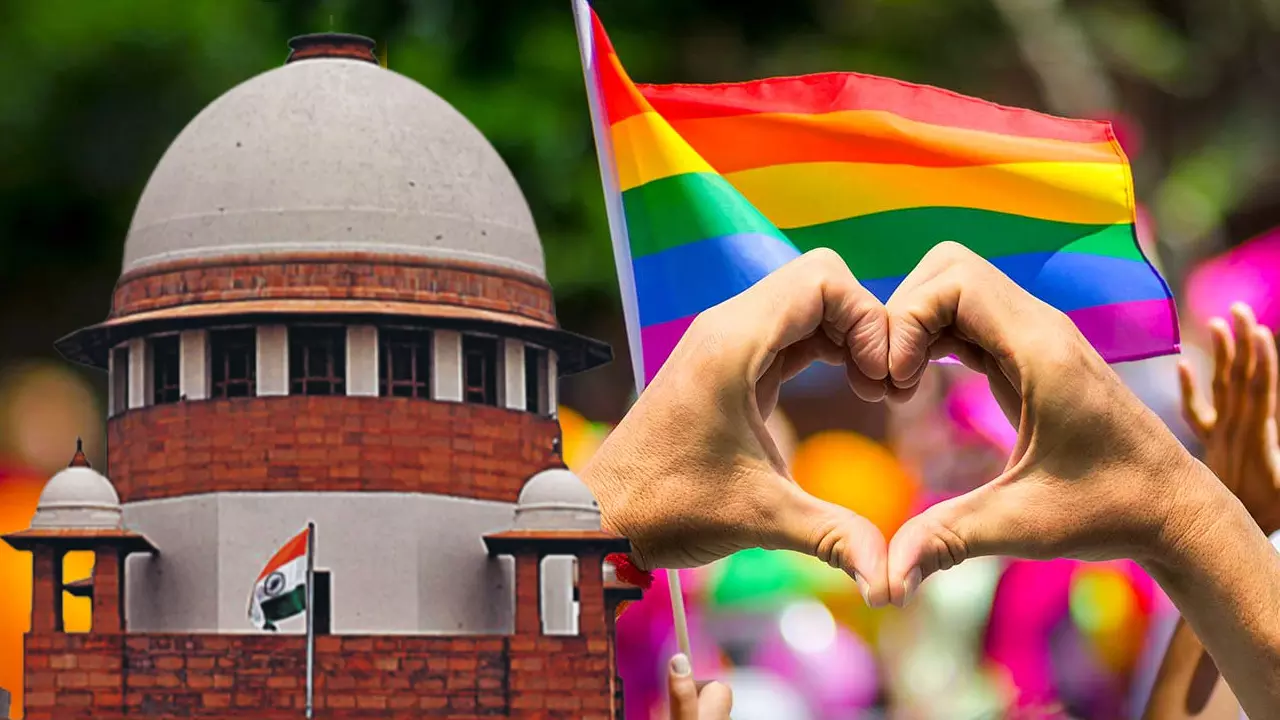New Delhi, 17 October: The Supreme Court has refused to recognize gay marriage. The bench of four judges CJI, Justice Sanjay Kishan Kaul, Justice S Ravindra Bhatt and Justice PS Narasimha, Justice Hima Kohli gave a divided verdict on gay marriage.
The Supreme Court said that homosexuals can live together, but marriage cannot be recognized.
The Supreme Court has said that only the Parliament has the right to make changes in the Special Marriage Act, hence directed the Central Government to take necessary steps to stop discrimination against the LGBTQ community.
While giving the verdict on this case, Chief Justice DY Chandrachud said that gay couples should also get their rights like normal people.
The Chief Justice said that the argument that gay couples cannot be better parents is not correct. There is no study to prove that normal couples are better parents.
The Chief Justice said that gay couples have the right to marry. Gay couples also have the right to adopt a child.
The Chief Justice said that homosexuality is not limited to cities only, but a woman working in agriculture in a village can also be a lesbian.
The Chief Justice said that it is not correct to say that the institution of marriage is stable and immutable. The system of marriage has been changed by law.
The Chief Justice said that only the Parliament has the right to make changes in the Special Marriage Act. The Court should be careful in interfering in the jurisdiction of Parliament. Justice Sanjay Kishan Kaul, member of the Constitution Bench, agreed to the Chief Justice’s decision.
Justice S Ravindra Bhatt disagreed with the Chief Justice’s decision and said that gay couples cannot be given the right to adopt a child. Justice Hima Kohli agreed with the decision of Justice S Ravindra Bhatt.
The Supreme Court had reserved its decision on May 11 after hearing the matter for ten days. During the hearing, the National Commission for Protection of Child Rights had said that the concept of gender may be ‘changeable’, but not mother and motherhood.
The court had said that the welfare of a child is paramount. The country’s law allows adoption for various reasons. Even a single person can adopt a child. Such men or women may be in monogamous relationships.
The court said that even if you are capable of having children, you can adopt a child. There is no compulsion to have biological children.
During the hearing, the court had said that only the Parliament has the right to make laws in the matter of marriage and divorce. In such a situation, we will have to see how far the court can go.
During the hearing, lawyer Maneka Guruswamy of one of the petitioners had said that the government’s reply was against the basic spirit of the Constitution. This is also against the decision of the Supreme Court given in Kesavananda Bharati and Puttu Swamy cases. Because the right of judicial review is also the basic spirit of the Constitution under Article 32.
On March 13, the court had referred the matter to the Constitution Bench.





